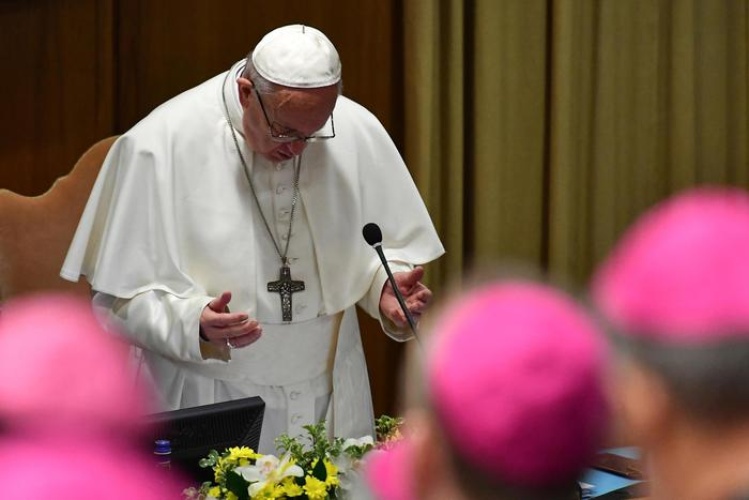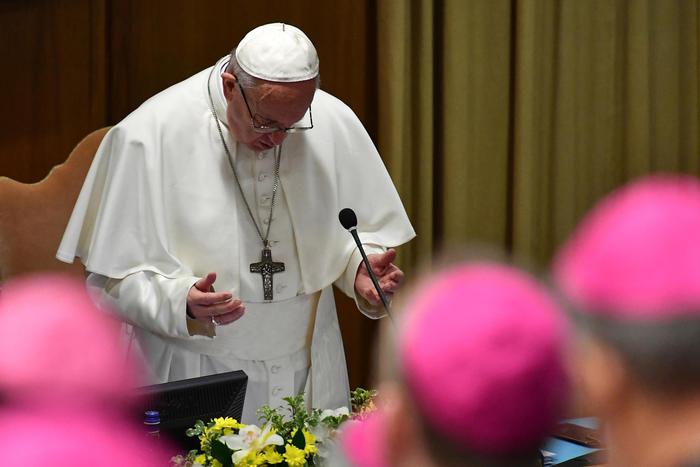Over the next three days, the pontiff will meet with 114 bishops and religious superiors from around the world to discuss the Church’s response to child abuse by members of the clergy.
“The holy people of God looks to us, and expects from us not simple and predictable condemnations, but concrete and effective measures to be undertaken. We need to be concrete,” he said at the summit.
“Hear the cry of the little ones who plead for justice.”
The 82-year-old pontiff hopes to expose the ongoing abuse through prayers, speeches, working groups and testimonies from victims.
On Thursday, he presented 21 proposals to consider moving forward, some of them easy to adopt, others requiring amendments to canon law.
Francis said the summit was a moment to “turn this evil into an opportunity for awareness and purification” and “heal the grave wounds that the scandal of paedophilia has caused, both in the little ones and in believers”.
The meeting aims educate attendees, who will then return home with clear ideas on how to identify and respond to abuse and paedophilia within their communities.
The first day of the summit included statements from unnamed abuse survivors from five different continents: Europe, Africa, Asia, South America and North America.
“You are the physicians of the soul and yet, with rare exceptions, you have been transformed – in some cases – into murderers of the soul, into murderers of the faith,” A Chilean survivor told those present.
An African woman told religious leaders she’d been forced to have three abortions by a priest who began violating her when she was 15 years old.
The woman said she was so young and trusting, she didn’t even know she was being abused.
“He gave me everything I wanted when I accepted to have sex; otherwise he would beat me,” she said.
“I got pregnant three times and he made me have an abortion three times, quite simply because he did not want to use condoms or contraceptives.”
During the summit, Pope Francis aims to emphasise the fact that sex abuse within the Church is a worldwide issue which needs to be addressed in every country.
However, more than 30 years after the scandal first erupted in Ireland and Australia, and 20 years after it hit the US, bishops and Catholic officials in many parts of Europe, Latin America, Africa and Asia still either deny that clergy sex abuse exists in their regions or play down the problem.
Archbishop Charles Scicluna on Thursday educated bishops on how to conduct an abuse investigation under canon law and called for a transition from a culture of silence to a “culture of disclosure”.
Scicluna told religious leaders they should cooperate with civil law enforcement investigations and communicate openly with their communities regarding abuse cases.
“[People] should come to know us as friends of their safety and that of their children and youth,” he said.
“We will protect them at all cost. We will lay down our lives for the flocks entrusted to us.”
Scicluna added that it was a “grave sin” to withhold information from the Vatican about candidates for bishops, referring to the recent scandal involving former American cardinal, Theodore McCarrick.
Pope Francis last week defrocked McCarrick after a Vatican court found him guilty of abusing minors and adults.
It was reportedly known within the Church that McCarrick had slept with young seminarians.












